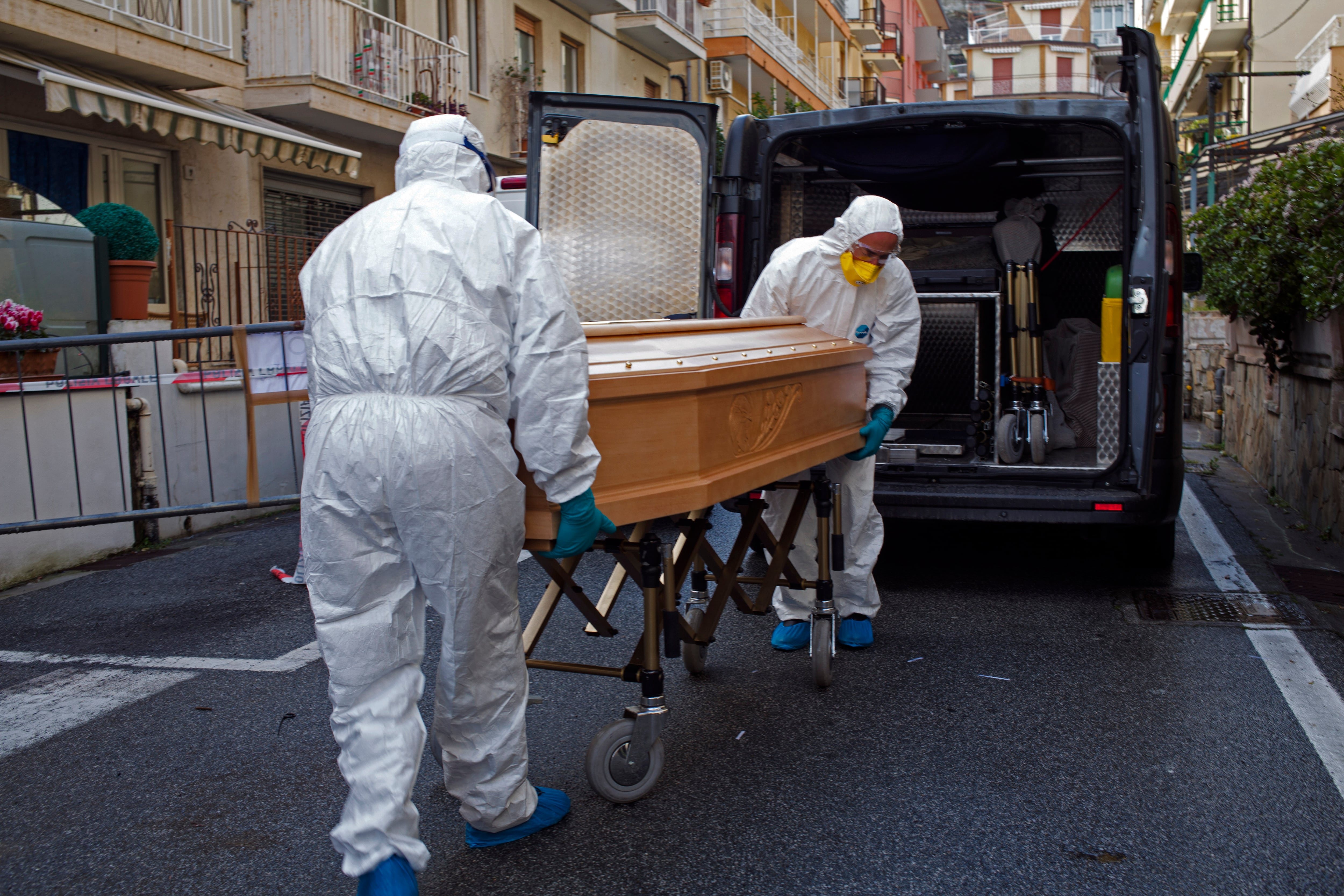The news from Italy remains grim because of the COVID-19 pandemic. Death tolls are mounting. The infection continues to spread. There is no immediate let-up in sight.
My wife and I, already three weeks into self-isolation, remain in Rome under government-mandated pandemic protocols. The result:
1. All non-essential stores and businesses are closed.
2. People have been ordered by their political leadership to remain at home.
3. Citizens on the street without government-approved justification face heavy fines.
4. Grocery stores and pharmacies remain open but only during prescribed hours, while maintaining social-distancing protocols.
5. Few are willing to venture outside without mask and gloves.
6. Everyone is on edge, wondering if things will get worse before they get better. They also wonder just how bad, bad can get. All indicators suggest a long period of self-isolation ahead.
RELATED

Full disclosure: I am not a physician. I am, though, a former United Nations Chief Security Advisor, who had a hand in writing UN plans for dealing successfully with pandemics. In that capacity, I advised both staff members and their families on commonsense safety protocols.
With that understood, allow me to provide a few personal survival tips. Remember, accept health-related recommendations only from competent medical authority. There is a great deal of bad information on the Internet. Be cautious what you read, and then more cautious what you decide to implement.
Fortunately, the metrics of the virus are straightforward: a medical degree is not required. One infected but symptomless person, thinking s/he is well, can easily infect 10; those 10 may infect 100; the 100 could eventually infect 1,000 and so on. Most carriers do not know that they are infectious and spreading the epidemic as they go about their normal daily activities. This is precisely how an outbreak in China became a world-wide pandemic.
Although it may seem overly simplistic it bears multiple repetitions, if you are never exposed to the virus, you cannot contract it. Therefore, every competent medical authority echoes the same mantra — STAY AT HOME! This is especially true for senior citizens suffering from underlying medical conditions impacting their immune systems: Those most vulnerable. If you do nothing else except stay in your dwelling, you have already reduced your likelihood of infection by a very significant degree. Of course, you can improve on those percentages.
Unless you have already stockpiled considerable quantities of surgical masks and gloves; hand sanitizer; canned and frozen fruits, vegetables, and meat; non-perishable dry foodstuffs like rice, lentils and beans; drinking water (if your tap water is not potable); and, of course, toilet paper; you may have to brave the out-of-doors to do a shopping or two or more while in lock-down.
If home delivery of groceries and/or essential medicines is a possibility, use it. You may rightly assume that the fewer the forays into your region of the jungle the better. Since the virus can remain active even when left on surfaces like metals or wood, touch nothing that you don’t have to. When at the grocery store keep at least a yard’s distance between you and others, whenever possible.
Use your credit card, which can be easily disinfected after every use, instead of cash. And, of course, be wearing mask and gloves before you step outside. You should avoid touching your face because the virus enters the body via the most convenient portals: your mouth, nose, and perhaps even your eyes.
Once you are safely ensconced in self-isolation at home, it is important to note that your time in personal quarantine may be measured in several weeks. Be patient. You need to be prepared both physically and mentally for a long social dry spell.
On the other hand, if you hate your in-laws, perhaps you are in for a welcome respite. You make the choice to decide if the glass is half-full or half-empty. If you choose to perceive it as half-full, your time in lock-down will be much improved. If not, I hope you enjoy suffering. Bottom line: Try and use the time to positive effect!
If you wish to remain sane (most of us do), stay on your routine as much as possible. If you are working from home, attempt to keep business hours. If your kids are at home with you, good luck with that. If you can fit it in, set aside 30 to 60 minutes per day for some sort of house/apartment exercise. Exercise of any sort is good for your immune system. If you and your significant other are unaccustomed and perhaps uncomfortable spending a great deal of time in such proximity, recognize it early, and schedule some “me time” every day. Even those madly in love on occasion need a break from one another.
I am extremely lucky. Since my retirement, I have become a writer and author. In other words, I can usually find something to scribble about. If you have an in-door hobby, this is the moment to develop it further. If you don’t have an indoor hobby, find one.
If you love to read, as I do, this is a terrific time to catch up on those books that you have been promising yourself to peruse: This is without question the time for it. If you are at home with young children, bonne chance.
Robert Bruce Adolph is a former United Nations Chief Security Advisor and US Army Special Forces Lieutenant Colonel. He recently published a startling book entitled “Surviving the United Nations: The Unexpected Challenge,” that is available on both Amazon and Barnes & Noble websites.
Editor’s note: This is an Op-Ed and as such, the opinions expressed are those of the author. If you would like to respond, or have an editorial of your own you would like to submit, please contact Military Times managing editor Howard Altman, haltman@militarytimes.com.





